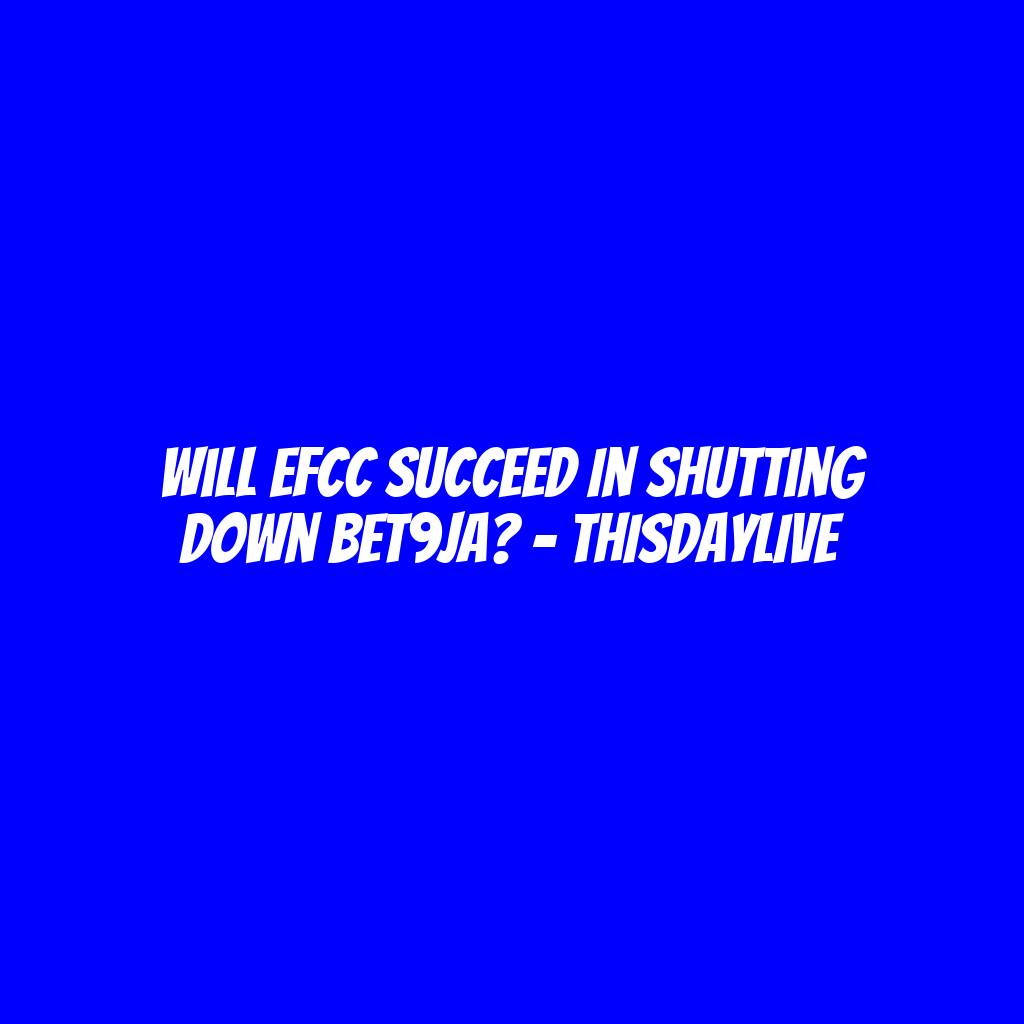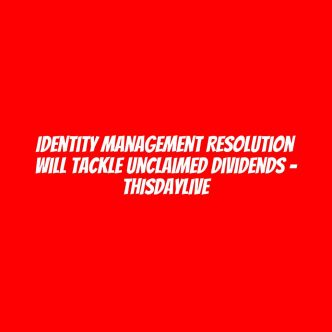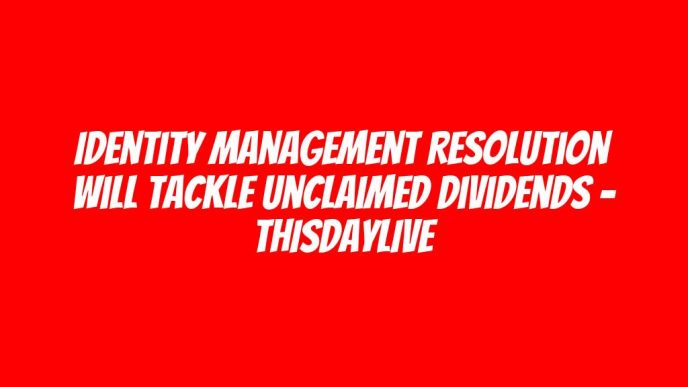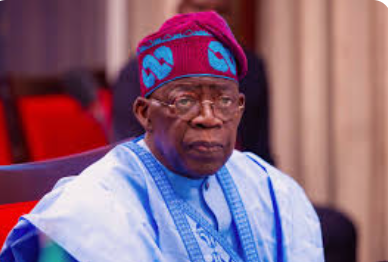Nseobong Okon-Ekong and Iyke Bede report that one of Nigeria’s leading operators in the sports betting space is currently facing a court trial championed by the Economic and Financial Crimes Commission that may have a definitive effect on the gaming industry in Nigeria
The entire gaming industry in Nigeria is currently following with keen interest a matter before the Federal High Court, Birnin Kebbi Division, where KC Gaming Networks Limited, widely known by the moniker Bet9ja, along with two of its associates, are facing a series of money laundering charges.
The Economic and Financial Crimes Commission (the Sokoto command) has levelled an eight-count charge against the company and its affiliates, Sunday Ochonu and Gabriel Ochonu, for their alleged involvement in laundering proceeds from unlawful lottery activities in Sokoto.
The indictment in charge No FHC/KB/CR/19/2024 includes allegations of receiving, retaining, and transferring funds they knew were derived from unlawful acts. These charges are based on violations of the Money Laundering (Prevention and Prohibition) Act, 2022, under Section 18(2)(d). Section 18(4) of the Act outlines the penalties for such offences, including five to 10 years’ imprisonment for individuals, while corporate bodies can be fined between ₦5,000,000 and ₦25,000,000.
The devil in the details
Odeyemi Yemi Tunde, a punter, staked ₦200 on a series of games with ticket number B9TH64669473444–12110749 in April this year. The ticket, which turned out to be a winning ticket with potential winnings of ₦5,323,256.33, has since become a focal point in legal proceedings. The investigation into handling this substantial prize has led to charges against KC Gaming Networks Limited (Bet9ja) and its associates, who are accused of laundering the proceeds from this transaction.
Upon reaching out to Gabriel, the shop’s manager, Tunde was informed that such winnings could not be redeemed and would require approval and payment by Sunday, who owns the shop. After a meeting with Sunday a couple of days later, Tunde received ₦323,000 and was told he would receive the rest of his money in instalments. Sunday was subsequently invited by the Economic and Financial Crimes Commission (EFCC) after it was revealed that the enforcement unit had arraigned his manager.
After several investigations, Sunday revealed that Gabriel, who also had access to the admin account, had looted funds from his account to stake games, resulting in a series of losses after exhausting the funds wired to Sunday by Bet9ja. Note that Sunday’s wallet was used because the ticket in question was not played with Tunde’s personal account. According to Sunday, he noticed transactions on the account on April 27 and 28 and reprimanded Gabriel.
In a statement dated 06/05/24, Sunday pledged to pay Tunde the sum of ₦2,000,000 and to spread out the payments of the remaining ₦3,000,000 in ₦500,000 instalments between June and November. A subsequent statement dated 09/05/24 revealed that Sunday had paid Tunde ₦2,500,000, promising to pay the remaining sum by the end of the month.
In his account, Gabriel revealed that he had made several withdrawals from the wallet to stake games. In three consecutive successful moves, he staked ₦1,000,000 but lost. In a frustrated attempt, he staked another ₦500,000 and lost. Additionally, he moved ₦1,000,000 (two transfers of ₦500,000) to his SportyBet account, staked, and lost. He also admitted to transferring ₦150,000 to his OPAY account ₦40,000 to a customer he owed, and could not account for how he squandered the remaining funds in the account.
Intrigues
This case exposes the challenges of doing business in Nigeria, where the cultural and religious practices are not in alignment with aspects of the law of the federation, sometimes giving the impression that there might be a different set of laws in operation in different parts of the country. This particular case is intriguing because it brings to the fore some of the daring questions which confront us as Nigerians daily. Can agencies of the federal government EFCC, Corporate Affairs Commission (CAC) and the National Lottery Regulatory Commission (NLRC), all established by acts of the National Assembly, confront themselves in an embarrassing manner before a court of law?
It might have been tolerable if the Sokoto government instituted the matter in court, saying it does not want lottery activities within its jurisdiction. But this is not the case. Curiously, the EFCC, an agency of the federal government, is seeking to get rid of the lottery business by prosecuting Bet9ja. Is it possible that the EFCC is ignorant that the CAC has approved the business of KC Networks Limited or that the NLRC licenses the company to carry on the lottery business all over Nigeria?
GAMING WEEK reports that the EFCC has a functional desk at its headquarters dedicated to interfacing with the gaming industry. The Special Control Unit against Money Laundering (SCMUL) is a department under EFCC charged with registering, monitoring, and supervising the activities of designated non-financial businesses and professions in line with the money laundering laws. Is the Sokoto command of the EFCC ignorant of the activities of all arms of the organisation? What the EFCC has succeeded in doing may be likened to taking telecom services operators like GLO, MTN and/or Airtel to court for selling airtime or data.
Tagging a business that is enabled by law as a crime is most absurd and intriguing. Does the Sokoto command of the EFCC not know that the federal government established the NLRC by law in 2005 (amended in 2017) to regulate lottery business in Nigeria? With a vast and thriving operation covering all states of the federation, Bet9ja directly employs 1,200 staff.
Its network of 15,000 agents is responsible for putting food on the table of over 200,000 employees. Bet9ja is reputed as one of the biggest tax players in corporate Nigeria. Every state, including Sokoto and Kebbi, derives direct financial benefits from withholding tax paid by Bet9ja monthly. The company pays tens of billions of naira annually in company income, value-added, and education taxes and carries out sundry CSR activities across Nigeria.
Every segment of the gaming industry is waiting to see how the Bet9ja case at the Brinin Kebbi Division of the Federal High Court pans out. At the end of the day, the pronouncement of the judiciary may not be limited to that jurisdiction only. It is expected to have far-reaching effects on the lottery business in Nigeria.
The trial is ongoing and adjourned until September 2024.













